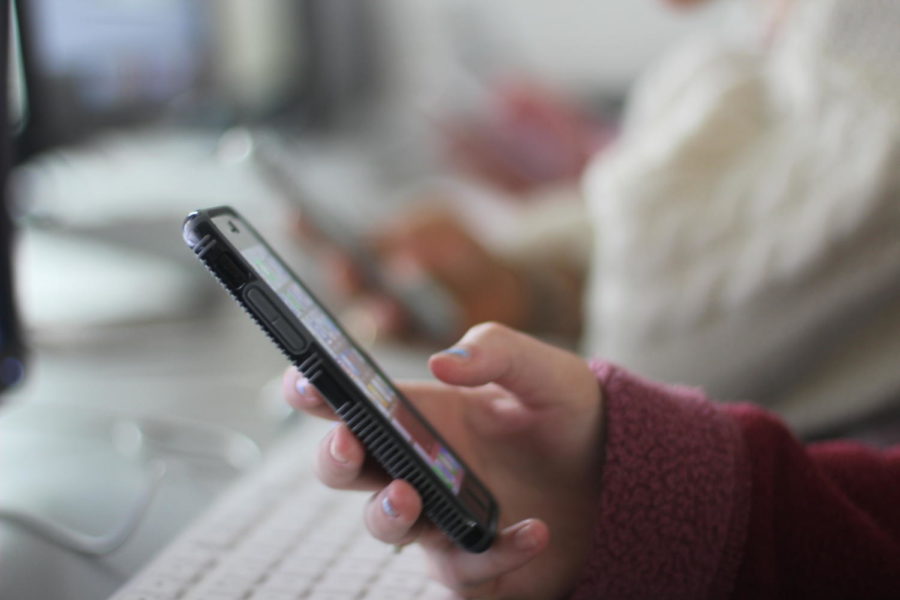The technological takeover of our young minds
In recent years, phone addiction has become more and more of a problem.
November 21, 2018
Tap, scroll, slide, repeat. Snapchat streaks. Instagram likes. This is the life for many – myself included. We stare at our phones with our lighted screens illuminating our faces as pools of students pass us by, looking down at their own phones. This almost seems like an opening scene of a “Black Mirror” episode, but it is not. This is a scene of which we are all guilty of being our own actors in, every single day.
While freshman, sophomores, juniors, and seniors are all aware of this continuous problem of technology bearing too large a role in each of our lives, it is a problem we cannot so easily solve. It is now engrained within our culture, and once our eyes are glued to a screen, it is nearly impossible for us to look up again.
“At our high school, I see it a lot – especially in the morning or after lunch. People come right to the senior area, and while they might be with each other, they are not making any contact,” Eric Haun ‘19 said.
Within East Grand Rapids High School, each student often finds themselves placing a Snapchat story or an Instagram live video above what is more important: face-to-face human contact. Contact that is not filtered through the ever-so-often glance at a screen or a constant buzz of someone’s phone going off, but contact that is pure. Contact that is sheltered from the distractions that technology perpetually creates.
“People are always sitting down with their backs hunched and their phones out,” Haun said. “Even if people are doing things together, a lot of times they are on their phones and preoccupied, not paying attention to the situation.”
Along with creating a loss of human contact, technology also disrupts the flow of human interaction through the forms of texts and social media, in which thoughts are often lost in translation.
“[Technology] makes things a lot more complicated,” an anonymous freshman explains. “For example, misunderstandings and fights between friends can happen quickly and people can say things over text that they will immediately regret. When people text, they sometimes do not think about the consequences – especially for freshman, who are often still very immature.”
All students have had to deal with the negative impacts that this virtual form of communication has generated. Although many argue that technology stimulates human contact by allowing people to connect in a more efficient, effortless way – this perspective is quite superficial. Within each relationship affected by technology, true communication is not prioritized.
“People tend to form more connections online than in real life,” Haun ‘19 said.
Text messages trump face-to-face contact and virtual friendliness masks genuineness. What was once defined as a legitimate connection is now replaced by one infected by DMs and subtweets.
So, the next time you are conversing with another student, put the phone down. Turn it off. Look up. And have a real connection. Because a connection you make that requires eye contact, courage, and vulnerability is indelibly better than a virtual one.



